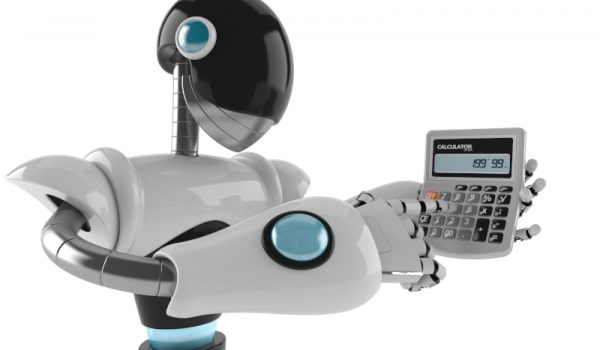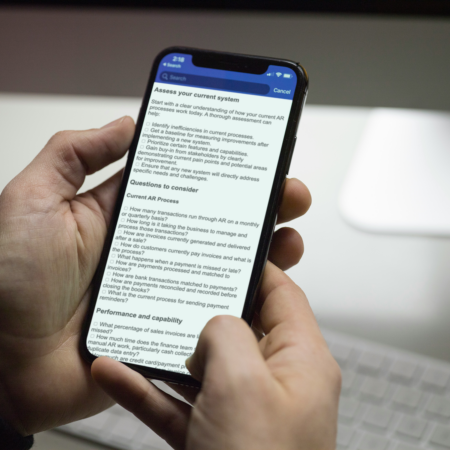
Robotics Processing Automation, or RPA, is becoming the central focus of the automated accounting world. As businesses look to be more agile and decisive in decision making, automating key processes like accounting provides a way to get the best data faster.
According to a recent poll by Deloitte, 52.8% of professionals will seek to improve operations through process automation and analytics in the accounting processes. Of those examined, 34.7% plan to utilize RPA to increase efficiency in the following years. While the potential is great, is RPA this the sole answer to process innovation? Are there risks to RPA?
What is RPA?
RPA is a new kind of automation that harnesses basic artificial intelligence to reduce human involvement in basic, repeatable tasks. RPAs are bots. In fact, they’re sometimes called robo-accountants. For accounting purposes, RPAs are used to handle the bulk of transaction processing like vendor invoices and financial closes and reconciliations.
What Are the Benefits of RPA?
There are several benefits that come with RPAs. In the same Deloitte article mentioned previously, Kyle Cheny, a Deloitte Risk and Financial Advisory Partner said:
“Finance and accounting process automation can really run the gamut. Simpler, enhanced finance automation can address common, industry agnostic accounting issues. RPA can build momentum by performing repetitive, manual financial and accounting processes.” Kyle Cheny, Deloitte Risk and Financial Advisor Partner
This certainly seems important for faster computing and data analysis that businesses demand. As mentioned, RPAs are programs, not people, so they can process financial data much faster than people and even help avoid human errors. This also has the potential to reduce labor demands and costs, saving companies money. However, it’s important to note that RPAs are like any software, a business tool.
Instead of eliminating human accountants, RPA has the potential to be a valuable resource to accountants. Because RPAs reduce transactional data processing, accountants can focus more on delivering financial analysis to help guide better business decisions for the organization. Even still, there are significant risks in relying too much on RPA.
The Drawbacks of RPA
The reality is that RPAs are only useful if they can be designed to perform repetitive tasks effectively. When they are though, RPAs can still falter due to inflexibility. Because RPA is optimized to process-specific tasks and formats, when transaction data differs from this criterion, it can break.
For now, RPAs simply can’t adjust to changes in the way a person can, they are designed for a specific function. Because RPAs function best when processes remain uniform and data formats don’t change, they are relatively limited in what they can do. If the RPA system does encounter instances that deviate from its programming, delays and data errors can result. While RPA does utilize artificial intelligence, the design isn’t resilient enough to deal with unexpected changes indicative of a rapid-moving business IT environment. Incorporating new tools or systems can also be problematic for RPA technology. Again, transactions or actions that differ from the established processes can cause errors.
Legacy Systems
In a Forbes article, solution architect Keith L. Murphy warned:
“You should consider using RPA if you have a large legacy application as part of a process that functionally works, has no bugs, doesn’t need new features, [and] doesn’t require developing additional applications to support the process,” -Keith L. Murphy, Solution Architect, Outsystems
In the article, Murphy also advised that overly focusing on RPA could divert businesses’ focus away from higher priority goals like replacing legacy systems holding them back.
Additionally, robotics processing automation still needs experienced financial professionals to guide accounting processes and draw financial insight from the transactions. Even when they are deployed, RPAs require constant monitoring to ensure errors don’t occur and that the bots are operating within the established requirements. This also means that maintenance must be conducted regularly to ensure proper functionality. You can’t rely solely on RPA for your accounting.
In a perfect world without change or variation, RPAs might not be so risky an investment, but right now it’s still too inflexible to be the revolutionary tool it’s hyped up to be. Implementing the bots tends to be an expensive and complicated undertaking too. Once complete, a minor change in a business application could easily throw off the RPAs’ functionality and cause repercussions in the back office.
Alternative Solutions?
Do these drawbacks eliminate RPA as a powerful solution? Not necessarily, but, there are other accounting solutions you can look for to take your company into the future. Automated accounting is firmly here to stay and is becoming faster and more efficient. Additionally, application programming interface (API), is becoming even more proficient at enabling software to communicate and work together to allow fluid workflow. API can actually enhance RPAs too, and when it comes to automating your front-to-back office, this is a major investment to look into.
Instead of investing in RPA, consider transitioning out of legacy accounting systems that lack automation or aren’t able to connect to your other mission-critical applications. Transitioning to a business management platform like Salesforce offers you the opportunity to streamline your whole operation via native applications that range from sales to accounting.
See Accounting Seed in action
Get a close-up view of how accounting on Salesforce can eliminate the need for costly integrations—and silos of mismatched information—by sharing the same database as your CRM.


